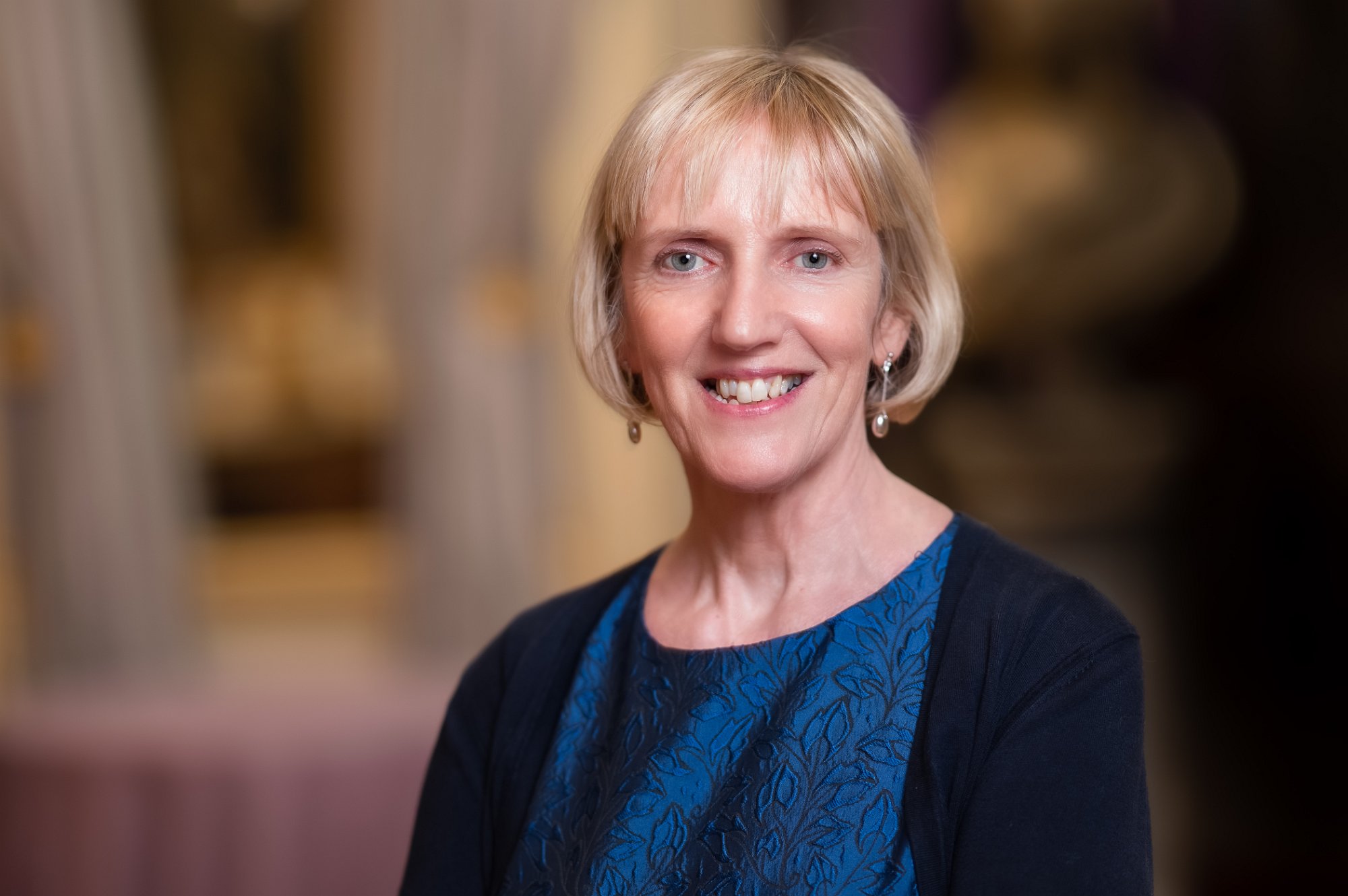Jean Sprackland. Photo © Adrian Pope / T. S. Eliot Prize
THIS POETRY CULTURE OF OURS
Jean Sprackland, Chair of Judges, T. S. Eliot Prize 2022
Poetry often seems to be imagined as a kind of eternal patient, with anxious enquiries in the press and elsewhere about its state of health. This year’s T. S. Eliot Prize received 201 entries, a number which does not just politely exceed the record but smashes it. There can be no doubt that poets, far from being silenced by crisis, always rise to meet it through language. And just as it takes a village to raise a child, so it also takes a literary community to make a book. We need publishers, editors, agents, workshops, mentors, first readers and supportive friends. With so many books coming forward this year, there is reason to be confident that this essential infrastructure is thriving, in spite of funding constraints and all the other difficulties that threaten it. I want to pay tribute this evening to all the labour, seen and unseen, that keeps this poetry culture of ours alive and kicking.
It has been a momentous privilege to act as Chair of Judges this year. I’d like to thank my fellow judges, Hannah Lowe and Roger Robinson, who were a joy to work with at every stage. Huge thanks to Mike Sims, Director of the Prize, for his calm efficiency and the warmth and enthusiasm with which he guided the process. Thanks also to Chris Holifield, who brought the three of us on board and set things in motion before handing over to Mike.
Getting from 201 books to a shortlist of ten was a long and difficult task, but it’s a list the three of us will always be proud of. Congratulations to all ten poets on your wonderful books.
Ephemeron by Fiona Benson investigates the lived experience of maternity through fine observation of nature and through the powerful reimagining of myth. Many of the poems speak the virtually unspeakable by means of extraordinary technical control. They dare to touch the darkest and tenderest of places, like bruises, ‘livid, and raw to the touch, and exposed’.
Jemma Borg’s Wilder is a fiercely intelligent and passionate book which asks urgent questions about our relationship to the natural world. She brings the forensic attention of the scientist to wildness within as well as around us. The poems are formally supple and adept, taking what may be small and familiar, like seeds, and ‘shaking them / loose into risk’.
Victoria Adukwei Bulley’s Quiet is a debut collection notable for its formal range and experimentation, in which we encounter a powerful revision of black female bodies and perceptions. It evokes and asserts the value of the individual and the inner life, holding its politics with subtlety and care.
The Thirteenth Angel, like all Philip Gross’s work, fuses the physical and the metaphysical, and lights the profoundest subject matter with shafts of playful humour. He is a poet with exceptional gifts of observation, whether it’s a panoramic view of the earth and its inhabitants or ‘the mutterings of quiet circumstance / under the threshold of attention’.
Anthony Joseph’s Sonnets for Albert is a luminous collection which celebrates humanity in all its contradictions and breathes new life into an enduring form. It is courageous and moving in its acknowledgement of masculine frailty and the search for meaning through slivers of unreliable memory.
In England’s Green, Zaffar Kunial’s unique interrogation of language means that the poems operate on two levels – firstly as enquiries into identity, and secondly as enquiries into the words through which identity is constructed. The poems ache with grief, but also glitter with wit, and relish for sound, and the ‘little steepling points of memory / I could tune out of and into’.
In Slide, Mark Pajak is completely in control of his subject – this is a polished debut notable for its precision of line and image. The tautness of the writing reflects other kinds of tension, the voice alluding again and again to violence on or just under the surface as the poems move between the light and darkness of human connection and separation.
James Conor Patterson’s bandit country speaks of a legacy of violence, trauma and survival, with such irrepressible energy it leaves the reader breathless. This is a country with its own laws and its own language, which never excludes the reader but lends a sense of disorientation and specificity that makes sense and non-sense of the human condition.
In The Room Between Us, Denise Saul uses her singular voice to explore the many facets of caring and the complex role of the carer. It offers a strikingly original account of communication in extreme circumstances, showing us the failure of language, but also its capacity to adapt and find new forms.
Yomi Sode’s Manorism is unique in its exploration of black masculinity in poems which move through the nuances and interrelations of anger, love and loss in swift, confident strides. It’s a book infused with a playwright’s imagination and sense of narrative, often positioning the reader as onlooker at the trauma of racism – a trauma that, as Yomi puts it, ‘folds itself in ocean waves, letting its remnants wash up on the shore for us to collect’.



